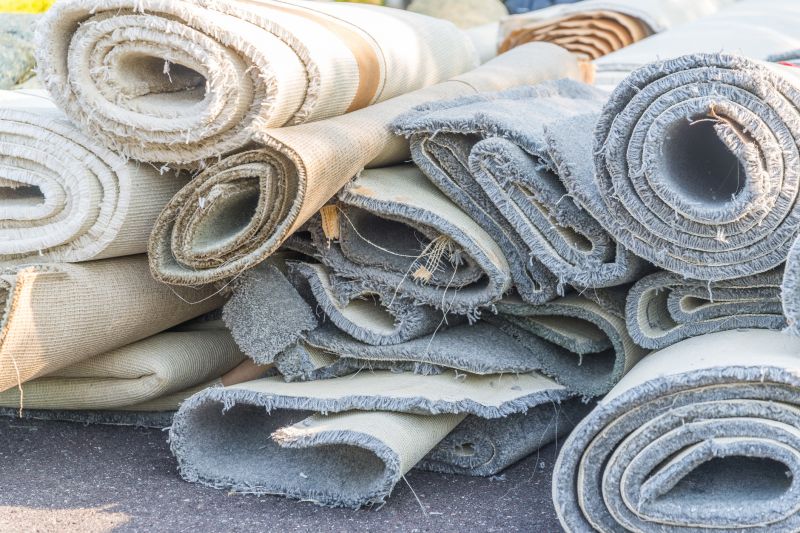Top-Rated Products for Carpet Removal You Can Count On
Select from proven tools and supplies that help you complete carpet removal projects with confidence and efficiency.
 Carpet removal is a common task during home renovations, remodeling projects, or when replacing old flooring. Selecting the right products for carpet removal can make the process more efficient and less labor-intensive. There are various tools and equipment designed specifically for loosening, lifting, and extracting carpets from different types of flooring surfaces. From manual tools to powered devices, understanding the available options helps in choosing the most suitable products for your specific needs.
Carpet removal is a common task during home renovations, remodeling projects, or when replacing old flooring. Selecting the right products for carpet removal can make the process more efficient and less labor-intensive. There are various tools and equipment designed specifically for loosening, lifting, and extracting carpets from different types of flooring surfaces. From manual tools to powered devices, understanding the available options helps in choosing the most suitable products for your specific needs.
Top Overall Option
Electric Carpet Remover
An electric carpet remover is a versatile power tool designed to efficiently loosen and lift carpets with minimal manual effort. It typically features adjustable blades and ergonomic handles to enhance control and comfort during use. Suitable for both residential and commercial projects, this tool can handle various carpet types and sizes, making it a popular choice for those seeking a balance of power and ease of operation.
Types of Products For Carpet Removals
Manual Pry Bar
A sturdy pry bar helps in lifting the edges of carpets and removing tack strips with precision, ideal for small or delicate jobs.
Carpet Knife
A sharp utility knife designed for cutting carpets into manageable sections and removing staples or adhesives.
Electric Carpet Remover
Power tools that automate the loosening and lifting process, reducing manual effort and increasing efficiency.
Oscillating Multi-Tool
A versatile tool equipped with specialized blades for cutting, scraping, and removing carpets and adhesives.
Floor Scraper
A heavy-duty scraper useful for removing adhesives, glue residues, or stubborn carpet backing.
Steam Cleaner
A device that uses steam to loosen adhesives and clean surfaces during carpet removal.
Carpet Staple Remover
A specialized tool for extracting staples and tack strips without damaging the subfloor.
Heavy-Duty Gloves
Protective gloves to safeguard hands from sharp tools and rough surfaces during removal.
Utility Gloves
Flexible gloves that provide dexterity and protection during manual carpet handling.
Adhesive Remover
Chemical solutions designed to dissolve residual adhesives left after carpet removal.
Heavy-Duty Trash Bags
Durable bags for collecting and disposing of old carpet materials and debris.
Floor Protection Mats
Protective coverings to safeguard underlying surfaces during the removal process.
Carpet Lifter Tool
A specialized tool designed to grip and lift large sections of carpet efficiently.
Power Scraper
An electric or pneumatic scraper for removing stubborn residues and adhesives.
Popular Choices
Widely used for its ability to quickly and effectively lift carpets with minimal manual effort.
A common tool for carefully lifting edges and removing tack strips during carpet removal.
Popular for its versatility in cutting, scraping, and removing adhesives in tight spaces.
Essential for cutting carpets into sections for easier removal and disposal.
Commonly used for hand protection during manual removal tasks.
Effective for removing adhesives and residues, especially in stubborn areas.
Often employed to loosen adhesives and clean surfaces during removal.
Frequently used for extracting staples and tack strips efficiently.
Popular for dissolving residual glue and adhesive residues after carpet removal.
Commonly used for collecting debris and old carpet materials during projects.
Chosen for its ability to remove tough residues and adhesives efficiently.
Manual tools such as pry bars and carpet knives are essential for delicate removal work, allowing precise separation of the carpet from the tack strips and subfloor. For larger areas or more stubborn carpets, powered tools like electric carpet removers or oscillating multi-tools equipped with suitable blades can significantly reduce effort and time. Additionally, specialized carpet extractors or steam cleaners can assist in removing residual adhesives or stains during the process.
When considering carpet removal products, it's important to evaluate the type of carpet, the flooring underneath, and the scope of the project. Heavy-duty tools are recommended for commercial or industrial carpets, while lightweight options may suffice for small residential jobs. Safety features such as ergonomic handles, safety guards, and adjustable settings enhance user comfort and reduce the risk of injury. Proper disposal methods and compatibility with existing tools should also factor into your decision-making process.
Investing in quality carpet removal products can streamline your project, minimize damage to underlying surfaces, and improve overall efficiency. Whether you are a DIY enthusiast or a professional contractor, selecting the right tools tailored to your specific job requirements will contribute to a smoother, safer, and more effective carpet removal experience.
Key Buying Considerations
- Type of carpet and backing material to determine suitable tools.
- Size of the area to be covered and the scale of the project.
- Manual versus powered tools based on physical capability and project complexity.
- Compatibility of tools with existing equipment or accessories.
- Safety features such as ergonomic handles, guards, and safety switches.
- Ease of use and weight of the equipment for prolonged use.
- Durability and build quality of the tools for repeated use.
- Ability to handle different flooring types beneath the carpet.
- Availability of replacement blades, parts, and accessories.
- Disposal options for old carpet materials and debris.
- Budget constraints and overall value for the investment.
- Cleaning and maintenance requirements of the tools.
- Availability of customer support or warranty options.
- User reviews and ratings to gauge reliability and performance.
- Environmental considerations, such as chemical use or noise levels.
This content contains affiliate links. We may earn a commission when you purchase through these links, at no additional cost to you.
